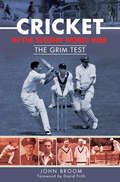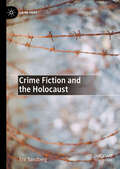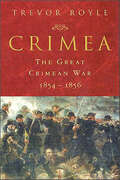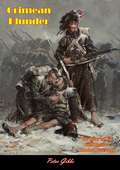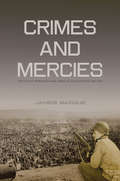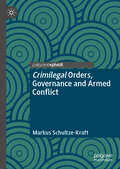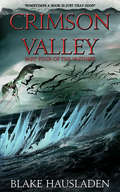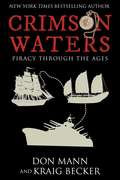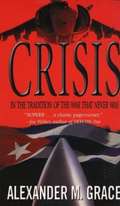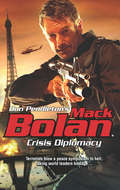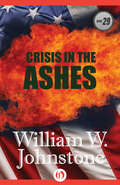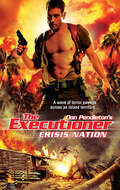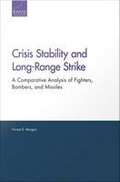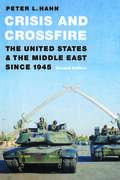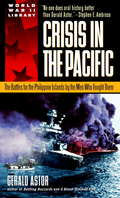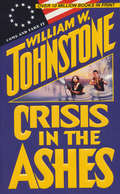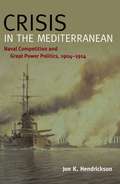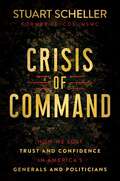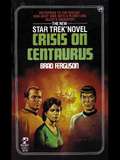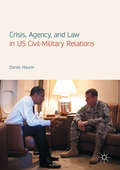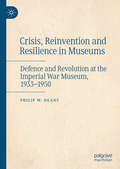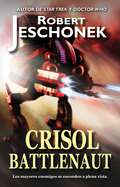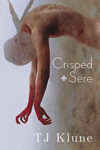- Table View
- List View
Cricket in the Second World War: The Grim Test
by John BroomAs the civilised world fought for its very survival, Sir Home Gordon, writing in The Cricketer in September 1939, stated that ‘England has now started the grim Test Match with Germany’, the objective of which was to ‘win the Ashes of civilisation’. Despite the interruption of first-class and Test cricket in England, the game continued to be played and watched by hundreds of thousands of people engaged in military and civilian service. In workplaces, cricket clubs, and military establishments, as well as on the famous grounds of the country, players of all abilities kept the sporting flag flying to sustain morale. Matches raised vast sums for war charities whilst in the north and midlands, competitive League cricket continued, with many Test and county players being employed as weekend professionals by the clubs. Further afield the game continued in all the Test-playing nations and in further-flung outposts around the world. Troops stationed in Europe, Africa and the Far East seized on any opportunity to play cricket, often in the most unusual of circumstances. Luxurious sporting clubs in Egypt hosted matches that pitted English service teams against their Commonwealth counterparts. Luminaries such as Wally Hammond and Lindsay Hassett were cheered on by their uniformed countrymen. Inevitably there was a sombre side to cricket’s wartime account. From renowned Test stars such as Hedley Verity to the keen but modest club player, many cricketers paid the ultimate price for Allied victory. The Victory Tests of 1945 were played against a backdrop of relief and sorrow. Nevertheless, cricket would emerge intact into the post-war world in broadly the same format as 1939. The game had sustained its soul and played its part in the sad but necessary victory of the Grim Test.
Cricket in the Second World War: The Grim Test
by John BroomAs the civilised world fought for its very survival, Sir Home Gordon, writing in The Cricketer in September 1939, stated that ‘England has now started the grim Test Match with Germany’, the objective of which was to ‘win the Ashes of civilisation’. Despite the interruption of first-class and Test cricket in England, the game continued to be played and watched by hundreds of thousands of people engaged in military and civilian service. In workplaces, cricket clubs, and military establishments, as well as on the famous grounds of the country, players of all abilities kept the sporting flag flying to sustain morale. Matches raised vast sums for war charities whilst in the north and midlands, competitive League cricket continued, with many Test and county players being employed as weekend professionals by the clubs. Further afield the game continued in all the Test-playing nations and in further-flung outposts around the world. Troops stationed in Europe, Africa and the Far East seized on any opportunity to play cricket, often in the most unusual of circumstances. Luxurious sporting clubs in Egypt hosted matches that pitted English service teams against their Commonwealth counterparts. Luminaries such as Wally Hammond and Lindsay Hassett were cheered on by their uniformed countrymen. Inevitably there was a sombre side to cricket’s wartime account. From renowned Test stars such as Hedley Verity to the keen but modest club player, many cricketers paid the ultimate price for Allied victory. The Victory Tests of 1945 were played against a backdrop of relief and sorrow. Nevertheless, cricket would emerge intact into the post-war world in broadly the same format as 1939. The game had sustained its soul and played its part in the sad but necessary victory of the Grim Test.
Crime Fiction and the Holocaust (Crime Files)
by Eric SandbergThis book explores a wide range of twentieth and twenty-first century international fiction that engages with the Holocaust and its historical legacy. It examines the use of tropes of crime and detection in the representation of historical atrocity in both explicit crime fiction and in literary fiction that relies on some of crime fiction&’s signature techniques. Crime Fiction and the Holocaust asks why patterns of detection have become a favoured method of fictional engagement with the Holocaust, considers the ethical and textual problematics of fictional encounters with real-world suffering, and delineates crime fiction&’s formal and thematic contributions to the broader project of Holocaust fiction.
Crimea: The Great Crimean War, 1854–1856
by Trevor RoyleThe definitive history of the Crimean War from world-renowned historian Trevor Royle.The Crimean War is one of history's most compelling subjects. It encompassed human suffering, woeful leadership and maladministration on a grand scale. It created a heroic myth out of the disastrous Charge of the Light Brigade and, in Florence Nightingale, it produced one of history's great heroes. New weapons were introduced; trench combat became a fact of daily warfare outside Sebastopol; medical innovation saved countless soldiers' lives that would otherwise have been lost. The war paved the way for the greater conflagration which broke out in 1914 and greatly prefigured the current situation in Eastern Europe.
Crimean Blunder: The Story of War with Russia a Hundred Years Ago
by Peter GibbsFirst published in 1960, this book details the events in Turkey, the Crimea and the shores of the Black Sea during the military conflict fought from October 1853 to March 1856, in which Russia lost to an alliance of France, the British Empire, the Ottoman Empire, and Sardinia.In writing his book, English-born Zimbabwean author and BSA Police Reserve Superintendent, Peter Gibbs, attempts to tell a plain story, rather than to present a scholarly history text, and this is reflected in his easy-to-read yet highly informative style of writing.An excellent account, richly illustrated throughout with detailed maps and photographs taken during the Crimean war."[I]f the Crimean War deserves no label of greatness it cannot be dismissed as altogether negligible as wars go, if only because it cost nearly three hundred thousand lives."--Peter Gibbs
Crimes and Mercies
by James BacqueMore than 9 million Germans died as a result of deliberate Allied starvation and expulsion policies after World War II-one quarter of the country was annexed, and about 15 million people expelled in the largest act of ethnic cleansing the world has ever known. Over 2 million of these alone, including countless children, died on the road or in concentration camps in Poland and elsewhere. That these deaths occurred at all is still being denied by Western governments.At the same time, Herbert Hoover and Canadian Prime Minister MacKenzie King created the largest charity in history, a food-aid program that saved an estimated 800 million lives during three years of global struggle against post-World War II famine-a program they had to struggle for years to make accessible to the German people, who had been excluded from it as a matter of official Allied policy.Never before had such revenge been known. Never before had such compassion been shown. The first English-speaking writer to gain access to the newly opened KGB archives in Moscow and to recently declassified information from the renowned Hoover Institution in California, James Bacque tells the extraordinary story of what happened to these people and why.Revised and updated for this new edition, bestseller Crimes and Mercies was first published by Little, Brown in the U.K. in 1997.
Crimilegal Orders, Governance and Armed Conflict
by Markus Schultze-KraftComprehensively laying out the concept of crimilegality, this book presents a novel perspective on the relationship between what is conventionally termed organised crime and political order in the contemporary developing world. In hybrid crimilegal orders the moral, normative and social boundaries between legality and illegality-criminality are blurred, and through the violation of the official law, the illegal-criminal sphere of social life becomes legitimate and morally acceptable, while the legal turns illegitimate and immoral. Several examples of crimilegality and crimilegal governance in Colombia and Nigeria, including in relation to armed conflict termination, are used to illustrate these complex processes.
Crimson Is the Eastern Shore
by Don TracyIn CRIMSON IS THE EASTERN SHORE, the reader is taken through one of the most action-packed periods of history -- the War of 1812 in the setting of America's most beautiful and romantic stretch of land and water, the Eastern Shore of Maryland. In this stirring story, Don Tracy creates his most memorable character, Anthony Worth, called by many The King, the most powerful politician, planter and plotter within "three days' hard riding or close-hauled sailing". Worth has his magnificent plantation, Fairoverlea, the seat of his Kingdom, but he also has a grim secret on which his fortune is based, and which, if disclosed, would bring him shame and ruin. To keep disaster from touching his daughter, Gracellen, Anthony Worth resorts to every dark device of intrigue and violence. Imperious Gracellen, pampered daughter of The King, is the most precious thing in life to him and he works and schemes to protect her from the doom that threatens both of them. This threat is personified by Task Tillman of Larkspur Hill, the near- penniless neighbor who has loved and been loved by Gracellen since both were children.
Crimson Valley (The Vastness #4)
by Blake HausladenThis novella is part four of The Vastness, also available as a collection.A rebellion forms, creating four Kings.A gruesome battle is released leaving devastation in its wake. Our characters struggle to keep the world balanced as the war for Zoviya tears down families, province, and religions.“Blake has written an engaging story. I thoroughly enjoyed the character Emi. I was excited with her, scared with her, curious, hungry, and losing faith and gaining strength. I want to learn more about her. This is a sign of a good story, for me. I look forward to reading more.” – Amazon ReviewThe Vastness is the third and final omnibus collection to the Vesteal Series. The Vastness takes us deep into the capital of Bessradi, following the chaos of Native Silver, where new magic is emerging. Ghosts stir, the ground shakes, and an unknown magic has been unleashed. Blood soon becomes as important as air, and our characters struggle to keep the world balanced.In the end, the war will be over, but which side will win?“I was not sure who was mad and who was sane—the boy-king playing with death or the cult that followed him.” - BarokYou can read the trilogy in full volumes, or broken up into five novellas each.The Vestal SeriesA tale of violent magic, intrigue, and statecraft, the Vesteal Series is the story of four souls that are banished beyond the edge of the map to a land of gnarled forests, ancient magic, and the site of a terrible murder. Their struggles to survive will put them at odds with their families, their nation, and the very powers that shaped the world.1. Ghosts in the Yew Novella 1 - Beyond the Edge Novella 2 - Opposing Oaths Novella 3 - Reckless Borders Novella 4 - Bayen's Women Novella 5 - Falling Tides2. Native Silver Novella 1 - Sutler's Road Novella 2 - Forgotten Stairs Novella 3 - Thrall's Wine Novella 4 - Corsair Princess Novella 5 - Tanayon Born 3. The Vastness Novella 1 - Silent Rebellion Novella 2 - The River War Novella 3 - The Blinded Novella 4 - Crimson Valley Novella 5 - Singer's Reward
Crimson Waters: True Tales of Adventure. Looting, Kidnapping, Torture, and Piracy on the High Seas
by Don Mann Kraig BeckerA New York Times bestsellling author separates history from myth from the Pharaohs to Blackbeard and Captain Kidd to today. Soon after the first maritime trade routes became operational, seafaring bandits appeared to prey upon the cargo, crews, and ships of others. Crimson Waters traces the history of piracy around the globe, stretching back from its roots in 2500 BCE, through the Golden Age of Piracy in the 17th and 18th centuries, and up to the modern-day pirates who still threaten boats along coastlines and on the open seas. This journey through history includes: Evidence of "Sea People" during the reigns of Egyptian Pharaohs The raids and pillaging of seafaring VikingsThe tales of Blackbeard, the Barbarossa Brothers, Calico Jack, Captain Kidd, Sir Francis Drake, and Madam ChengA historical account of the real pirates of the CaribbeanPirates of the modern age and why the occupation has persevered And more!Crimson Waters satisfies all the armchair swashbucklers who long for a sense of adventure and the history buffs looking to spruce up their knowledge of maritime exploits.
Crisis
by Alexander M. GraceFidel Castro sees the end of his regime and life are in the near future. Trying to maintain power, he initiates two shocking military actions against the U.S. and Soviet Union.
Crisis Diplomacy
by Don PendletonJUSTICE PROTOCOL Terror hijacks an international conference on weapons of mass destruction in Stockholm when East Germans kidnap high-ranking government officials, including the U.S. vice president. And the ransom demand-a portion of each country's GNP-is enough to cripple the world's economies. Failure to comply ensures the hostages will be tortured and killed on a live video feed. Mack Bolan has to seize a narrow window of opportunity before the crisis spins out of control. But the tactically sophisticated terrorists stay one step ahead of him, moving the hostages to safe houses around the globe. In a cross-country blitz, he's obliged to confront friendly multinational forces converging in a desperate retaliation. Bolan negotiates the only terms the terrorists understand: certain death.
Crisis In the Ashes (Ashes #29)
by William W. JohnstoneBen Raines and his patriot army have defeated all comers, from mutant night people to the blackshirted forces of Jesus Mendoza Hoffman and the enemy axis in the Great War. But now the socialist dictators of the USA, smarting from their defeat at the hands of the Southern United States of America, have unleashed their fury against Raines. As wave after wave of missiles is launched at the free state, the SUSA command retaliates in kind-giving better than it gets. With the North American continent suddenly turned into a landscape of horror and destruction, Raines's rebel warriors charge into the USA to topple its tyrants and return to a subjected people their long-lost holy grail; the Constitution of the United States of America...
Crisis Nation
by Don PendletonWhen American military personnel are found beheaded in the swamps of Puerto Rico, Mack Bolan boards a plane and lands in a political revolution. As the streets of San Juan turn bloody, he suspects someone outside the country is running the show and the gangs behind the military slaughter are simple pawns in a much more complex game. After Bolan almost loses his own head in a midnight ax attack, an ambush sends some of his team to hospital. He decides it's time to take the war to the enemy--even if it means bringing down his own version of the apocalypse. Because when it comes to settling scores, the Executioner is the one wielding the ax.
Crisis Stability and Long-Range Strike: A Comparative Analysis of Fighters, Bombers, and Missiles
by Forrest E. MorganTo effectively manage an international crisis, the United States must balance its threats with restraint. It must posture forces in ways that deter aggression without implying that an attack is imminent, while limiting its own vulnerability to surprise attack. A RAND study sought to identify which long-range strike assetsâ#128;#148;strike fighters, bombers, ballistic missiles, cruise missilesâ#128;#148;offer capabilities most conducive to stabilizing such crises.
Crisis and Crossfire: The United States and the Middle East Since 1945
by Peter L. HahnCrisis and Crossfire traces the origins of the contemporary challenges facing the United States in the Middle East by analyzing the broad contours of U.S. policy in the region since the government&’s first involvement there in the 1940s. Peter L. Hahn evaluates U.S. policy in the context of such global phenomena as the Cold War and the multipolar international order that emerged in the early 2000s. He explains how the United States has tried, with varying degrees of success, to curtail, modify, and channel Arab and Iranian nationalist movements to serve U.S. interests.Crisis and Crossfire examines the U.S. approach to the Arab-Israeli conflict through eight decades, exploring the interstate wars of the 1940s–1980s, the quests to make peace in the 1970s–2010s, and the enduring strife between Israel and Palestine. Hahn details how the United States has assumed growing responsibility for regional stability and security in the Middle East since World War II, culminating in involvement in the Gulf War to liberate Kuwait and the invasions and occupations of Afghanistan and Iraq. This second edition provides an objective explanation of the Israeli-Palestinian Gaza War; the U.S. stand-off with Iran; the proxy wars in Lebanon, Yemen, Libya, and Syria; the threat of terrorism; and related topics.
Crisis in The Pacific: The Battles for the Philippine Islands By the Men Who Fought Them
by Gerald AstorFrom the depths of defeat. . . On December 8, 1941, one day after the bombing of Pearl Harbor, the Japanese Air Force struck the Philippines in the first blow of a devastating invasion. With an undersupplied patchwork army at his command, General Douglas MacArthur led a valiant defense of the Philippines. When defeat came, MacArthur swore he would return, while thousands of POWs fell into Japanese hands -- and faced a living hell that many would not survive. To the dawn of victory. . . In this gripping oral history, Gerald Astor brings to life the struggle to recapture the Philippines: the men who did the fighting, the battles that set the stage for an Allied invasion, and the acts of astounding courage and desperation that marked the campaign on both sides. From Corregidor to the Battle for Manila, from horrifying jungle warfare to cataclysmic clashes at sea, on beachheads and in the air,Crisis in the Pacificdraws on the words of the men who were there -- capturing this crucial heroic struggle for victory against Japan.
Crisis in the Ashes (Ashes #30)
by William W. JohnstoneIn a post-apocalyptic, dystopian America rebels fight to end an ongoing civil war and restore freedom—from a USA Today–bestselling author. Ben Rines and his patriot army have defeated many foes, from mutant night people to the blackshirted forces of Jesus Mendoza Hoffman and the enemy axis in the Great War. But now the socialist dictators of the USA, smarting from their defeat at the hands of the Southern United States of America, have unleashed their fury against Raines. As wave after wave of missiles is launched at the free state, the SUSA command retaliates in kind—giving better than it gets. With the North American continent suddenly turned into a landscape of horror and destruction, Raines's rebel warriors charge into the USA to topple its tyrants and return to a subjected people their long-lost holy grail: the Constitution of the United States of America....Twenty-ninth in the long-running series!
Crisis in the Mediterranean
by Jon K. HendersonThe geopolitical situation in the Mediterranean before the First World War has been generally ignored by historians. However, in the years before the War, the fact that the Mediterranean was shifting from British control to a wide open, anarchic state occupied the minds of many leaders in Austria-Hungary, Italy, France and Great Britain. This change was driven by three largely understudied events: the weakening of the British Mediterranean Fleet to provide more ships for the North Sea, Austria-Hungary's decision to build a navy capable of operating in the Mediterranean, and Italy's decision to seek naval security in the Triple Alliance after the Italo-Turkish War. These three factors radically altered the Mediterranean situation in the years leading up to the First World War, forcing Britain and France to seek accommodation with each other and France to begin rapidly building ships to defend both British and French interests. However, all of this activity has been largely obscured by the July Crisis of 1914 and the ensuing World War. Traditional history has looked backward from these events, and, in so doing, ignored the turbulent seas building in the Mediterranean. Conversely, this dissertation seeks to understand these events as they unfolded, to understand how policymakers understood the changing Mediterranean world. Ultimately, this dissertation seeks to redress the imbalance between historians, who have viewed the history of the Mediterranean in the early 20th century as a largely stable one, and policymakers in the Great Powers, who viewed the Mediterranean as a highly unstable region, and struggled to come to terms with that instability.
Crisis of Command: How We Lost Trust and Confidence in America's Generals and Politicians
by Stuart SchellerCombat-decorated Marine officer Stuart Scheller speaks out against the debacle of the Afghan pullout as the culmination of a decades-long and still-ongoing betrayal of military members by top leadership, from generals to the commander in chief, comes to light.Lieutenant Colonel Stuart Scheller was the perfect Marine. Battle tested. A leader. Decorated for valor. Yet when the United States acted like the Keystone Cops in a panicked haphazard exit from Afghanistan for political reasons, Scheller spoke out, and the generals lashed out. In fact, they jailed him to keep him quiet, claiming he lost the &“trust and confidence&” bestowed upon him by the Marines. When the faith and trust is exactly what our generals and even our commander-in-chief betrayed by exercising such reckless and derelict policies. Now Scheller is free from the shackles of the Marine Corps and can speak his mind. And in Crisis of Command, that he does. He holds our generals&’ feet to the fire. The same generals who play frivolously with the lives of our service men and women for political gain. The same general who lied to political leaders to further their own agendas and careers. Stuart Scheller is here to say that the buck stops here. Accountability starts now. It&’s time to demand accountability and stand up for our military. In this book, Stuart Scheller shows us how.
Crisis on Centaurus (Star Trek: The Original Series #28)
by Brad FergusonMassive computer malfunctions are plaguing the Enterprise when Kirk suddenly receives a shocking message from Star Fleet Command: Centaurus has been bombed and annihilated; thousands are dead. Give whatever help you can. Centaurus is a beautiful, peaceful planet, home to many humans -- including McCoy's daughter Joanna. The crew risks beaming down to investigate. But Kirk is thrown into a deadly struggle between violent enemy terrorists and vengeful Centaurians. Now Lt. Uhura, left alone in command, must jeopardize the cripple Enterprise to save Centaurus, Kirk -- and Joanna McCoy!
Crisis, Agency, and Law in US Civil-Military Relations
by Daniel MaurerThis book develops a responsible and practical method for evaluating the success, failure, or “crisis” of American civil-military relations among its political and uniformed elite. The author’s premise is that currently there is no objectively fair way for the public at large or the strategic-level elites to assess whether the critical and often obscured relationships between Generals, Admirals, and Statesmen function as they ought to under the US constitutional system. By treating these relationships—in form and practice—as part of a wider principal (civilian)-agency (military) dynamic, the book tracks the “duties”—care, competence, diligence, confidentiality, scope of responsibility—and perceived shortcomings in the interactions between US civilian political authorities and their military advisors in both peacetime and in war.
Crisis, Reinvention and Resilience in Museums: Defence and Revolution at the Imperial War Museum, 1933-1950
by Philip W. DeansThis book explores museum crises. Through an investigation into the experience of the Imperial War Museum during the Second World War era, 1933-1950, it considers how crises disrupt museums and the contrasting defensive and revolutionary strategies which museums must adopt when mitigating crises. It is situated in a small but emergent literature concerning museums and crisis. Existing works mainly comprise contemporary studies on difficult museum experiences, predominantly financial difficulty, wherein the term crisis has been applied to describe an institution’s general state of malaise. This book, by contrast, presents an innovative and groundbreaking historical case study on a single museum facing wholesale physical and ideological collapse, deploying original crisis concepts to analyse different critical situations and the pathology underlying them.
Crisol Battlenaut
by Robert JeschonekLos Red Battlenauts no tienen piedad. Rugiendo desde la oscuridad del espacio profundo, estas máquinas de guerra de altísima tecnología machacan a ambos bandos en una sangrienta guerra civil interestelar. Nadie puede ni siquiera VER a los rojos, excepto el cabo Solomon Scott. Reclutado por los Diamondbacks, los SEAL más duros, Scott se convierte en un arma secreta en la lucha definitiva por la supervivencia. Batalla tras batalla en peligrosos mundos alienígenas, Scott y los Diamondbacks luchan contra los despiadados Rojos, manteniendo desesperadamente la línea en furiosos choques de músculo y metal. Pero cuando un rostro del pasado saca a la luz los secretos que se esconden tras la carnicería, la búsqueda de respuestas se convierte en una carrera contrarreloj. Porque los amos de los Battlenauts Rojos tienen algo más en mente que una sed de conquista... y sólo Solomon Scott puede esperar hacerles frente. En la hora más oscura de la galaxia, los mayores riesgos imaginables impulsan a este héroe con armadura de Battlenaut a conquistar su destino. Pero, ¿podrá superar una traición que desgarra el alma y que surge de la nada como los propios Rojos? Sólo aplastando a los monstruos de su oscuro pasado podrá Scott vencer a las fuerzas que llevan a la humanidad al borde de la aniquilación.
Crisped + Sere (Immemorial Year #2)
by Tj KluneSequel to Withered + SereTwenty-one days. In a world ravaged by fire and descending into madness, Cavalo has been given an ultimatum by the dark man known as Patrick: return Lucas to him and the cannibalistic Dead Rabbits, or the town of Cottonwood and its inhabitants will be destroyed. But Lucas has a secret embedded into his skin that promises to forever alter the shape of things to come--a secret that Cavalo must decide if it's worth dying over, even as he wrestles with his own growing attraction to the muted psychopath. Twenty-one days. Cavalo has twenty-one days to prepare for war. Twenty-one days to hold what is left of his shredded sanity together. Twenty-one days to convince the people of Cottonwood to rise up and fight back. Twenty-one days to unravel the meaning behind the marks that cover Lucas. A meaning that leads to a single word and a place of unimaginable power: Dworshak.
